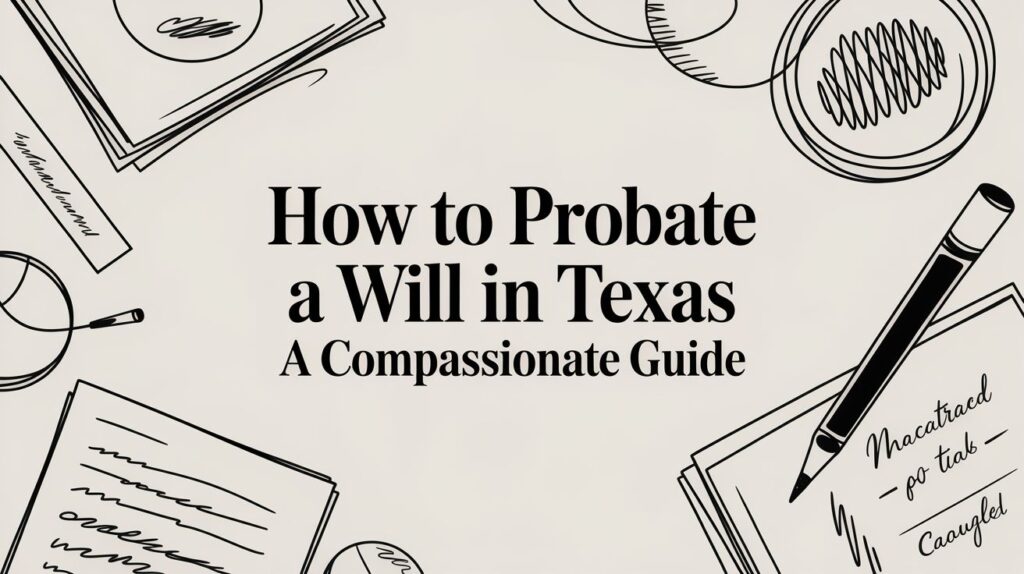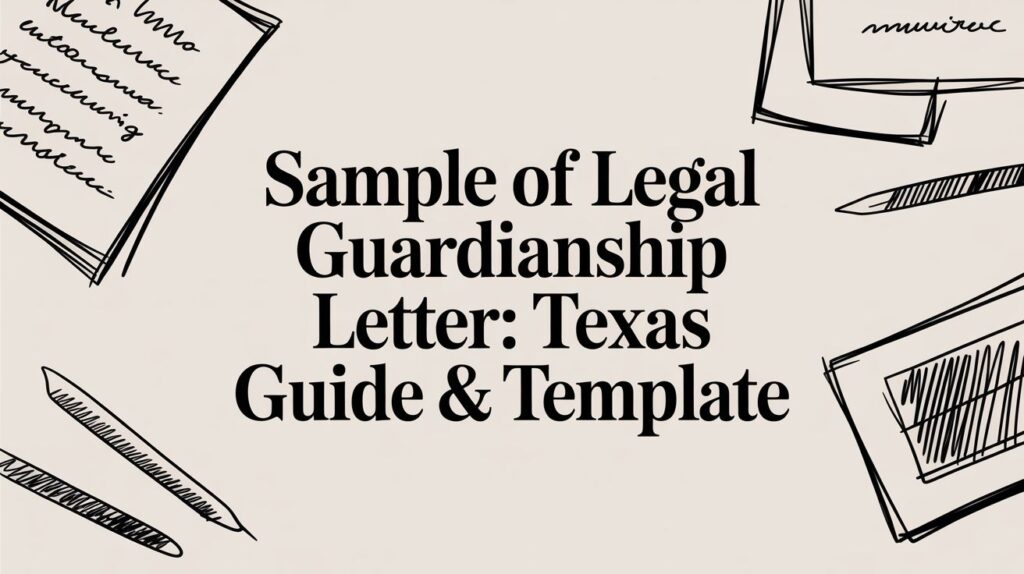Understanding the Probate Process in Texas
The probate process in Texas involves the legal validation of a deceased person's will and the administration of their estate. It is crucial for beneficiaries and heirs to understand the steps involved, including filing the will with the probate court, notifying creditors, and distributing assets according to the will or Texas law if no will exists.
In Texas, the probate process can vary in complexity based on the size of the estate and whether a will is present. For example, smaller estates may qualify for simplified procedures, such as a small estate affidavit, while larger estates typically undergo a more detailed probate process. Understanding these nuances can significantly affect how quickly and efficiently the estate is settled.
Common Misconceptions About Probate in Texas
Many individuals harbor misconceptions about probate, often believing it is a lengthy and costly process. While probate can take time and incur some expenses, understanding the facts can help alleviate fears and misconceptions. For instance, not all estates require probate, especially if assets are held in trust or if they pass directly to beneficiaries outside of the will.
Additionally, some people think that probate is only necessary for large estates. However, even smaller estates with certain types of assets may need to go through probate to ensure proper legal transfer of ownership. Clarifying these misconceptions can empower individuals to make informed decisions during the estate planning process.
Key Steps in the Texas Probate Process
The Texas probate process consists of several key steps that individuals must follow to ensure a smooth transition of assets. Initially, the executor must file an application for probate with the appropriate court, accompanied by the deceased's will and death certificate. This step is crucial for the legal recognition of the will and the executor's authority.
Following the filing, the court will hold a hearing to validate the will and appoint the executor. Once appointed, the executor is responsible for inventorying the estate's assets, notifying creditors, and eventually distributing the assets to the rightful heirs. Each of these steps is essential for adhering to Texas probate laws and ensuring the estate is settled correctly.
Choosing the Right Probate Attorney in Texas
Selecting a qualified probate attorney is vital for navigating the complexities of the probate process in Texas. A knowledgeable attorney can provide guidance on legal requirements, help prepare necessary documents, and represent the estate in court if disputes arise. It's important to look for an attorney with specific experience in probate law and a strong understanding of Texas regulations.
When choosing a probate attorney, consider their track record, client reviews, and ability to communicate effectively. A good attorney will not only provide legal expertise but also support you through what can be an emotionally challenging time. Engaging the right professional can make a significant difference in the efficiency and outcome of the probate process.
Understanding the Probate Process in Texas
The probate process in Texas involves the legal validation of a deceased person's will and the administration of their estate. It is crucial for beneficiaries and heirs to understand the steps involved, including filing the will with the probate court, notifying creditors, and distributing assets according to the will or Texas law if no will exists.
In Texas, the probate process can vary in complexity based on the size of the estate and whether a will is present. For example, smaller estates may qualify for simplified procedures, such as a small estate affidavit, while larger estates typically undergo a more detailed probate process. Understanding these nuances can significantly affect how quickly and efficiently the estate is settled.
Common Misconceptions About Probate in Texas
Many individuals harbor misconceptions about probate, often believing it is a lengthy and costly process. While probate can take time and incur some expenses, understanding the facts can help alleviate fears and misconceptions. For instance, not all estates require probate, especially if assets are held in trust or if they pass directly to beneficiaries outside of the will.
Additionally, some people think that probate is only necessary for large estates. However, even smaller estates with certain types of assets may need to go through probate to ensure proper legal transfer of ownership. Clarifying these misconceptions can empower individuals to make informed decisions during the estate planning process.
Key Steps in the Texas Probate Process
The Texas probate process consists of several key steps that individuals must follow to ensure a smooth transition of assets. Initially, the executor must file an application for probate with the appropriate court, accompanied by the deceased's will and death certificate. This step is crucial for the legal recognition of the will and the executor's authority.
Following the filing, the court will hold a hearing to validate the will and appoint the executor. Once appointed, the executor is responsible for inventorying the estate's assets, notifying creditors, and eventually distributing the assets to the rightful heirs. Each of these steps is essential for adhering to Texas probate laws and ensuring the estate is settled correctly.
Choosing the Right Probate Attorney in Texas
Selecting a qualified probate attorney is vital for navigating the complexities of the probate process in Texas. A knowledgeable attorney can provide guidance on legal requirements, help prepare necessary documents, and represent the estate in court if disputes arise. It's important to look for an attorney with specific experience in probate law and a strong understanding of Texas regulations.
When choosing a probate attorney, consider their track record, client reviews, and ability to communicate effectively. A good attorney will not only provide legal expertise but also support you through what can be an emotionally challenging time. Engaging the right professional can make a significant difference in the efficiency and outcome of the probate process.



